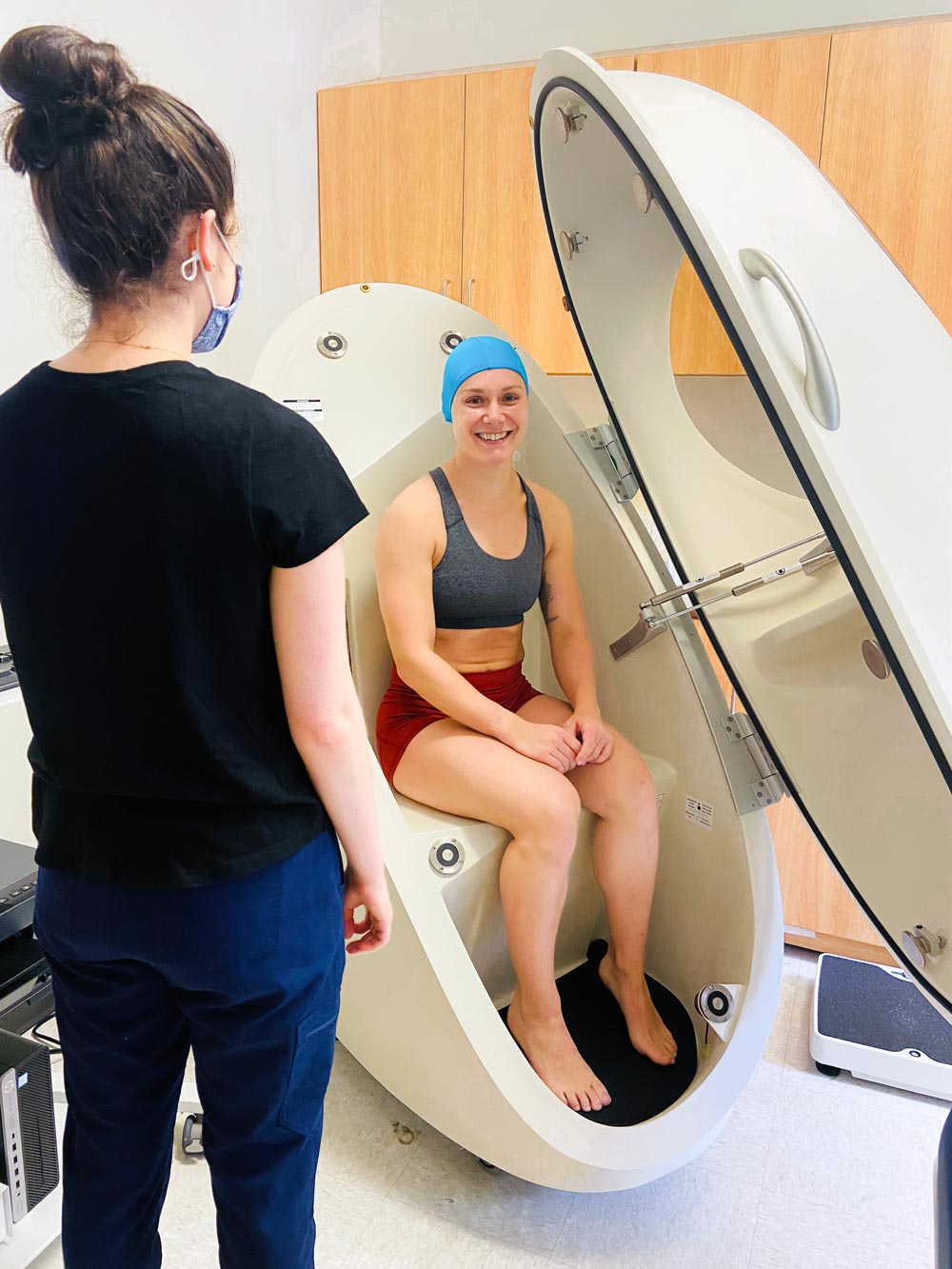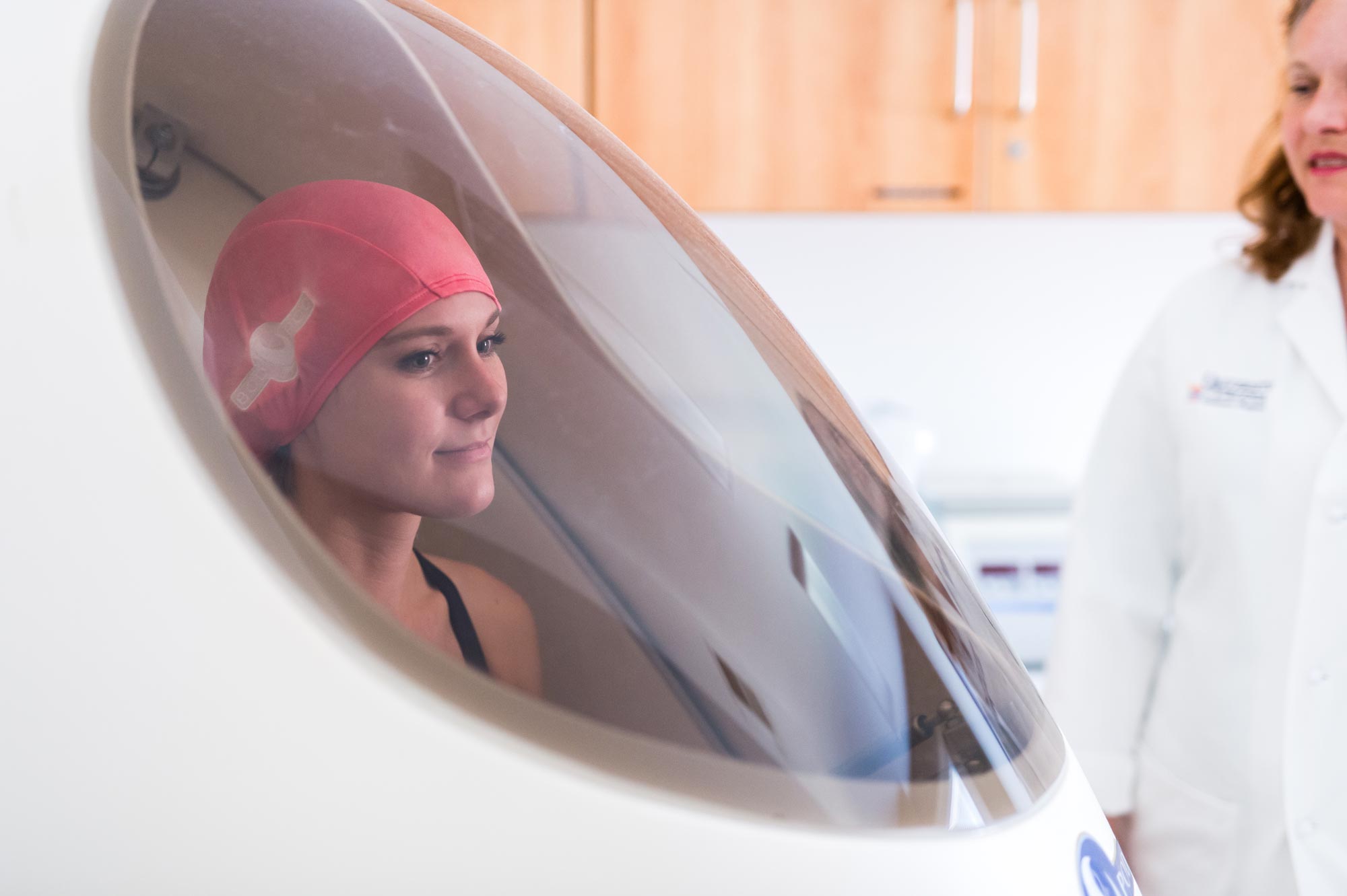It’s a sensitive issue, to be sure. While some people don’t even want their doctors knowing how much they weigh, others want to know as much about their health measurements as possible.
For those who have made a “new year, new you” body resolution, the debate leads to more questions like “What is BMI?” and “How important is it to know your number?”
BMI is short for body mass index. It’s a relatively simply weight-to-height ratio. Medical professionals and researchers use the index all the time. But should you?
Whether BMI is TMI, or even useful at all, is a complicated matter, says Lisa Farr, director of the University of Virginia School of Medicine’s Exercise Physiology Core Lab.
Farr answered UVA Today’s questions about body mass index, weight tracking and fitness planning, so readers can decide what’s right for them.
Q. Does it help to know your body metrics in general?
A. An often-used analogy is: If you are worried about money, would it make sense to never open your bank statement? To wrap your mind around where things are, as well as how they evolve, you probably need data.
Q. Is BMI a good thing to track if you are trying to lose weight?
A. BMI is a very simple-to-use, weight-to-height ratio. Technically, it’s weight in kilograms and height in meters squared.
For this reason, it is often used in doctor’s offices and can be generated using any number of online calculators, such as one the National Institutes of Health provides.

It is also frequently used in public health research, typically describing the general health of individuals of varying BMIs within a population.
But there are problems with BMI. For one, athletic people who have more muscle may weigh more, which results in a higher BMI. This higher BMI is not unhealthy. Second, older people who lose muscle and skeleton, but gain fat, might be considered “weight stable,” which means their BMI may stay roughly the same. But this even-steven BMI is not healthy.
Most people trying to change their weight have two goals: to decrease body fat, and to maintain or add muscle. BMI doesn’t capture this.
Q. Since BMI doesn’t reflect these goals, what does?
A. All body-composition techniques have pros and cons and a range of error. Tracking your weight each week using the same scales might be enough, or tracking heart rates with exercise so you can see your fitness improve. If you keep your exercise level the same over time, as you become more fit your heart rate will be lower.

Nicole Huebner, an exercise physiologist, helps model one of the lab’s useful, high-tech tools: the “Bod Pod.” (UVA Core Lab photo)
Or maybe it could be even simpler: a basic calendar. Did I exercise today? Check. Did I meet my goals for fruits, vegetables and healthy protein? Check. Check. Check.
People have choices about tracking – what, how, how often. Sometimes people get very focused on the numbers, when it’s really the change in behaviors that matters the most.
Q. We hear your lab has something called the “Bod Pod”? What’s that?
A. The Bod Pod is a simple test that uses air displacement to measure body volume, which, along with body mass and using some standardized equations, can provide percent body fat within about 2-3%.
It computes fat tissue versus nonfat tissue, so it does a decent job of reflecting changes as someone loses weight. A person can establish a baseline, make changes to diet and exercise, and then repeat the test a few months down the road to make sure any weight they have lost is coming from fat and not lean tissue.
The Bod Pod is not widely available, though the UVA Exercise Physiology Core Lab does have one they make available by appointment to community members for a cost of $97.90. (Repeat tests are $66). Alternately, many UVA research studies track body composition (through Bod Pod or a DEXA bone density scan), and eligible subjects receive their test results for free.
Q. Would you say data tracking is only worthwhile if it resonates with the individual?
A. Yes. There are many methods of tracking in today’s world of smartphones, smartwatches and health-related apps. For some, these will be motivating and revealing and will help them stay on track. For others, they can feel overwhelmed or like they take the joy out of exercise. People have a range of choices when it comes to tracking metrics. Just make sure what you are tracking is meaningful to your specific goals.
Media Contacts
Communications Manager School of Engineering and Applied Science
williamson@virginia.edu (434) 924-1321






